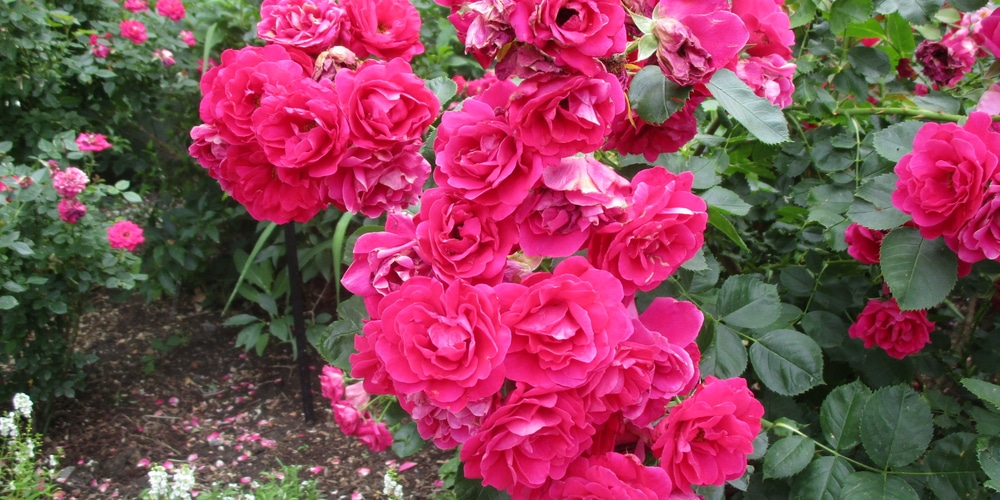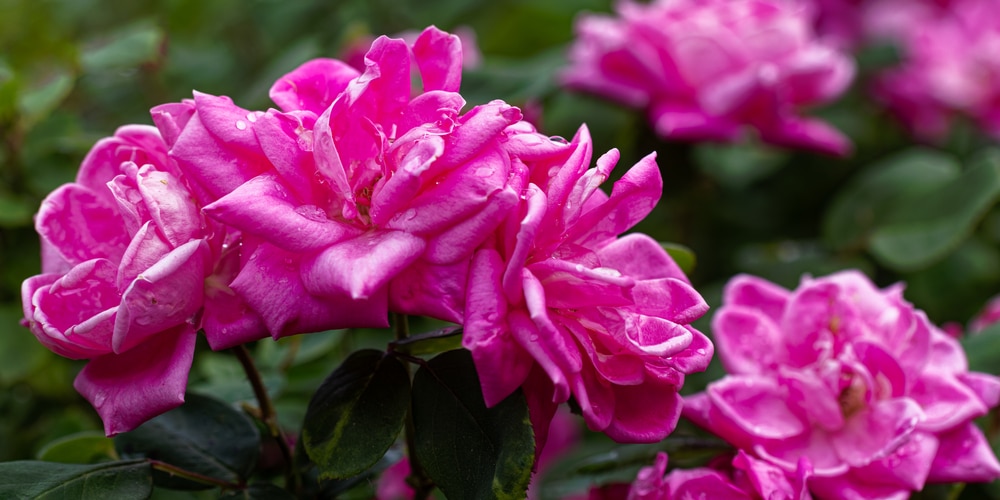It makes total sense that a showy and colorful plant such as knockout roses would attract birds and bees with its flowers, but do they? Do Knockout Roses attract bees?
Knock Out Roses may have several garden-worthy characteristics, but they will not attract bees to your garden. The reason for this is simple- bees are most attracted to nectar, and unfortunately knockout roses don’t have that much to begin with.
What Attracts a Bee to a Rose?

Spend some time in a rose garden and you’ll likely see a bee or two buzzing about. The nature scenes and documentaries you see on TV are true- bees love flowers and its sweet nectar, something that rose plants have in abundance.
It’s easy to think that a knockout rose falls in the same category, but it isn’t. Knock Out roses, or otherwise known as ‘Radrazz’ are hybridized and have several flower attributes compared to other rose species.
Knockout roses were made to be beginner-friendly and easy to grow. You can actually plant them in any area in your yard or garden and they will likely thrive. Furthermore, knockout roses produce a profusion of blooms and without the need to deadhead. This means that as long as they’re in a good growing condition then these plants will continue producing bright and cheerful rose flowers.
The only downside is that the flowers do not have the same fragrance or nectar content as other traditional varieties. However, in terms of toughness knockout roses are at the top of the list- they can withstand a drought or two and are highly resistant to pests and diseases.
Do Roses Attract Bees?
You may not know it, but bees have a preference when it comes to flowers. They usually lean towards certain variants, such as wild roses and a few hybrid types. More specifically, they will go towards yellow, single-stemmed roses rather than red blooms as they’re not able to visualize it.
In addition, bees are attracted to pollen and the scent of a flower. When a rose is chosen and pollinated, rosehips, or small seed coverings can be found and harvested for tea and similar beverages.
Bees are attracted to a lot of flowers, particularly those that have a strong scent and are conical in shape. The insects could get around to the nectar faster than usual. In roses, they tend to lean towards flowers that appear individually rather than double-stemmed ones.
It’s worth noting that bees pollinate flowers that have smaller and less intersped petals for its convenience. Tight petals make it difficult for the bees to come in and collect the nectar, so they will fly around and probably pick a nicer flower variant in your garden.
The reason why we tend to see bees in roses is because the plants tend to branch out and grow as a bush, and once well-established it will produce multiple blooms that vary in petal density and fragrance. The insects won’t have to fly as much and they can take their pick without experiencing too much competition from its peers. You can liken it to a feast, where every bee can get as much as they want in a tightly-packed space.
The Best Roses to Attract Bees
Wild Rose
Wild roses, such as the Grandiflora and Kiftsgate are very popular among bees. They can reach up to 30 feet in height and produce dozens, if not hundreds of flowers each growing season. Wild roses tend to grow well on their own but you’ll have to supply water every now and then, and more during hot summer days.
Hybrid Varieties
The Lady’s Blush, Kew Gardens and Morning Mist are some known variants that bees love to visit. These are hybrid varieties and they tend to produce more flowers in single stems than the others. In the same vein, those that have yellow or pink blooms are more pleasing to the bees’ eyes than those in white or red.
Do Knockout Roses Attract Bees?: Final Thoughts
Roses tend to attract other insects such as butterflies as well to your garden. They operate in the same manner as bees- first, they choose a brightly colored flower that has a nice sweet scent, approach and start looking for the nectar. There’s also a chance that it will take on knockout roses.

